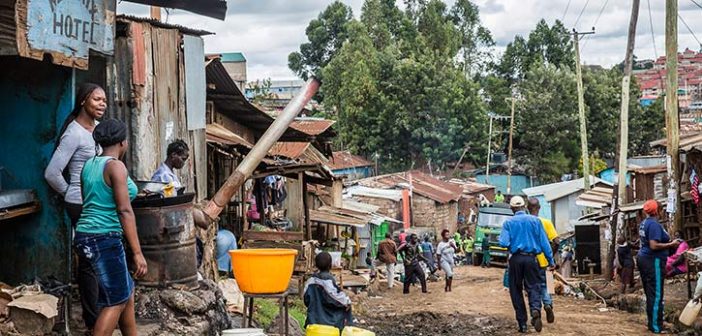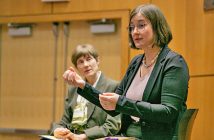The world is awash in more refugees than at any other time since the end of World War II.
According to the United Nations High Commissioner for Refugees, 59.4 million individuals were displaced last year, 8.3 million more than the year before. And since more than half of them have settled in cities, humanitarian aid workers face unique challenges in getting help to them.
From July 13 to 17, Fordham will offer a unique training program on the topic, “Urban Disaster, Vulnerability and Displacement: Humanitarian Challenges.”
The one-week graduate level course is the first joint effort between the Institute of International Humanitarian Affairs (IIHA) and the University’s Urban Studies Program. It counts as an elective for the Institute’s Masters in International Humanitarian Action (MIHA).
IIHA executive director Brendan Cahill said the course, which is geared toward mid-career practicing aid professionals, will feature instructors from agencies such as the New York City Office of Emergency Management, the United Nations, and the Red Cross.
The focus on cities is a reflection of how the world is urbanizing at breakneck speed, and how conflicts are increasingly found there too. In Syria, for instance, workers attempting to bring help to residents of Aleppo and Homs are often both behind and in front of enemy lines.
“Aid workers are not necessarily working solely in refugee camps; they’re increasingly working in communities. If it’s in South Sudan, for example, they may be working with the Nuer in small townships, but many of the displaced are going to come down to Juba, or some of these other smaller cities,” he said.
“In the old days, you would have had a refugee camp quite far from a urban environment, and you could put up tents and secure the perimeter, and set up feeding stations. But the conflicts have changed, and we have to adapt to that,” he said.
Rosemary Wakeman, PhD, Chair of the Urban Studies program, noted that many cities are becoming like refugee camps, and temporary camps are becoming more permanent, and so they’re becoming more like urban settlements. The Kibera slum on the outskirts of Nairobi, Kenya, is estimate to have at least 500,000 residents.
In addition to topics such as “New Humanitarian Technologies and Innovation” and “Best Practices in Empowerment and Resiliency,” one of the topics the class will focus on is “Urban Refugees, Misery Belts, and “Bare Life.”
“These misery belts and bare life situations are on vast peripheries of cities where there are largely refugees who are supposed to be there temporarily, and they’re merging into this informal world of slums and informal settlements,” Wakeman said.
“We’re trying to figure out a different and new perspective on this kind of spaciality and this kind of urban experience and how can we best bring to bear politics that own up to the reality that these are vast migratory patterns that are taking place, and how we can help these people integrate into the urban world.”
Wakeman views the class as experimental, with input of the dozen or so members of the first cohort as important as that of the instructors. The topic will be revisited in the fall when she teaches a graduate seminar on informal cities, and again next spring, when the IIHA publishes Humanitarian Response in Urban Settings, a book on the topic edited by IIHA research fellow Rene Desiderio, Ph.D.
Echoing recent comments by IIHA visiting professor of humanitarian studies Larry Hollingworth on the importance of helping aid recipients retain dignity, Wakeman said the she hopes to highlight planning strategies that help empower individuals, families and neighborhoods construct communicates in fluid situations, so they’re less dependent on large scale institutions like the UN.
“I would take it a step further and say they have extraordinary skills for survival and resiliency that no one is making use of, and that’s an extraordinary waste of human potential,” she said.
For more information about the course, please email [email protected].



